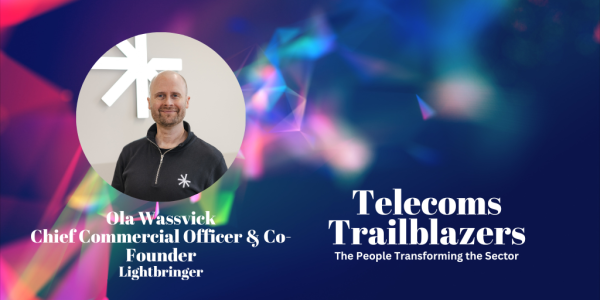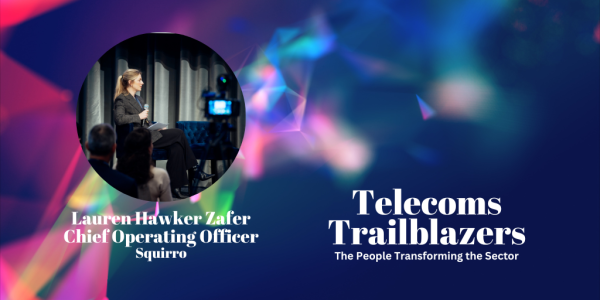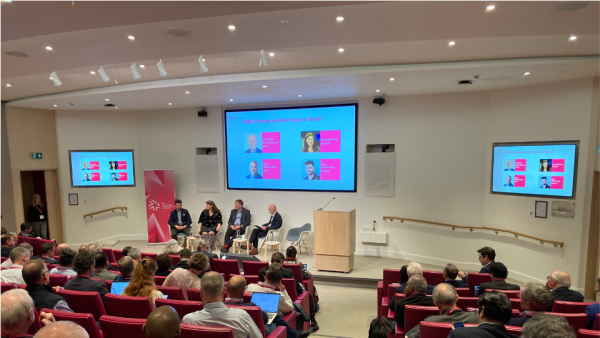
A series of Future Capability Papers, authored by the UKTIN Expert Working Groups, are being published over the coming months, with the first paper - Wireless Networking - launched today. Find out more about the papers here.
UKTIN spoke to Simon Saunders, Chair of the UKTIN Wireless Networking Technologies Expert Working Group to learn more about the paper.
Please talk us through the process of creating the paper.
First of all, we assembled the working group. We had an open call and received a lot of applications, which went through a selection process. Depth of experience was crucial but also a breadth of knowledge across the ecosystem. Sixteen people were recruited initially and then we recruited more along the way for special inputs. Participants expressed their individual views rather than contributing on behalf of their organisations, creating a rounded view without an agenda. We worked on the paper for a little over six months, with the view of trying to restore the UK’s position as punching above its weight in the technology of wireless networks. We decided on topics where attention was needed, appointed champions for each topic, and then produced a collective view on both existing strengths to build on, and on how to overcome the barriers to succeed in the future.
What is the one thing you’d like people to know about the report?
We have a section dedicated to the UK’s past success in wireless. The UK has been a pioneer for more than a century, at the centre of some of the most important developments and achievements. The key finding is that there is still a depth of capability. We haven’t lost the opportunity. We aren’t building from nothing. There is a wealth of expertise, but we need to pull it together in a coherent way, provide the necessary resources and coordination, and have ambition for the future. We need to seek ongoing public support for those elements to maximise our potential.
What surprised you most while preparing this report?
From occupying a leading position in the wireless technology world, the UK has slipped over time. Despite that, there are pockets of expertise that aren’t very well known to each other. We’ve got great raw material, even more than I expected when I started this work.
What conclusions were you able to draw from the paper?
In radio-frequency technology, there are some very specialist technologies and techniques that only wireless needs. We have talent and we have regional clusters but it’s a very expensive field to get into and we need to make sure that there are new facilities established to give people access to testing equipment. Another area specific to wireless is baseband processing: trends in that area are leading to 6G, dealing with issues such as improved energy efficiency and applying AI to wireless systems. These are all great opportunities for the UK but there is a real talent shortage. We need investment in skills and retraining people who already have a wireless background.
In terms of telecoms more generally, standards and intellectual property patterns emerged. The UK has a rather poor showing of companies turning good ideas into patents and participating in the international standards organisations that can create a market for those ideas. Oddly, a lot of the UK’s engineers do participate but they are doing it on behalf of international companies. Our Working Group identified we need to bring these engineers back to helping UK companies and create incentives for universities and researchers to protect their ideas in the form of patents. The paper therefore recommends that a new UK public-private partnership be created to deal with those things and that a new patent forum, backed by significant funding, supports filing and pursuing ideas. End-to-end network testing infrastructure would likewise facilitate this.
Another key takeaway is improving policy and regulation. Usually, people think about regulation as something that gets in the way, but regulation can create innovation in itself and stimulate new possibilities. Ofcom has proven this, but we need to make sure regulation is aligned with the government's view that telecoms is something that needs to be invested in, particularly on the supply side.
I’ve already mentioned skills and talent but more generally, we have an ageing workforce in this field. We need to encourage young people to come into the field. They need to be diverse, and we need a broader range of skills than were required in the past. This is going to be difficult because there are a wide range of other industries that need those skills as well.
Lastly, there are recommendations for adoption. I’ve talked about creating products and services but you need to make sure that they get picked up by the market. Mobile operators tend to be quite risk-averse, which makes this a challenge. In the paper, we propose operators are given credits to deploy UK-birthed technology, but get to choose deployments for themselves; we don’t want the governments or regulators to dictate. This incentive should help prove UK technology in real environments. Alongside this, we need to make more alternative routes to market via short-range, unlicensed and private networks.
We feel very good about what’s to come. The UK has been a great leader in the field in the past and if we follow these recommendations, we will be in great shape within the next five years or so. Let’s rebuild a world-class wireless supply base and reap the rewards as we move into the 6G era.
Are there any themes picked up in the wireless paper that we can expect to see continued or explored in more detail in the next paper, which focuses on AI?
The application of AI to wireless networking offers great promise, and we’ve worked together with the AI group on overlapping recommendations. Wireless systems are complex to design at both link and system level and they’re complex to operate. AI lends itself to all three stages of wireless development: modelling the complex traffic and propagation environments, designing the underlying signal processing and coding schemes to produce efficient communication, and optimising the millions of parameters which go into ensuring wireless systems run efficiently in practice. We will need the skills and the infrastructure to maximise those opportunities, and the recommendations across both groups should help achieve this.
Download the Future Capability Paper - Wireless Networking here









